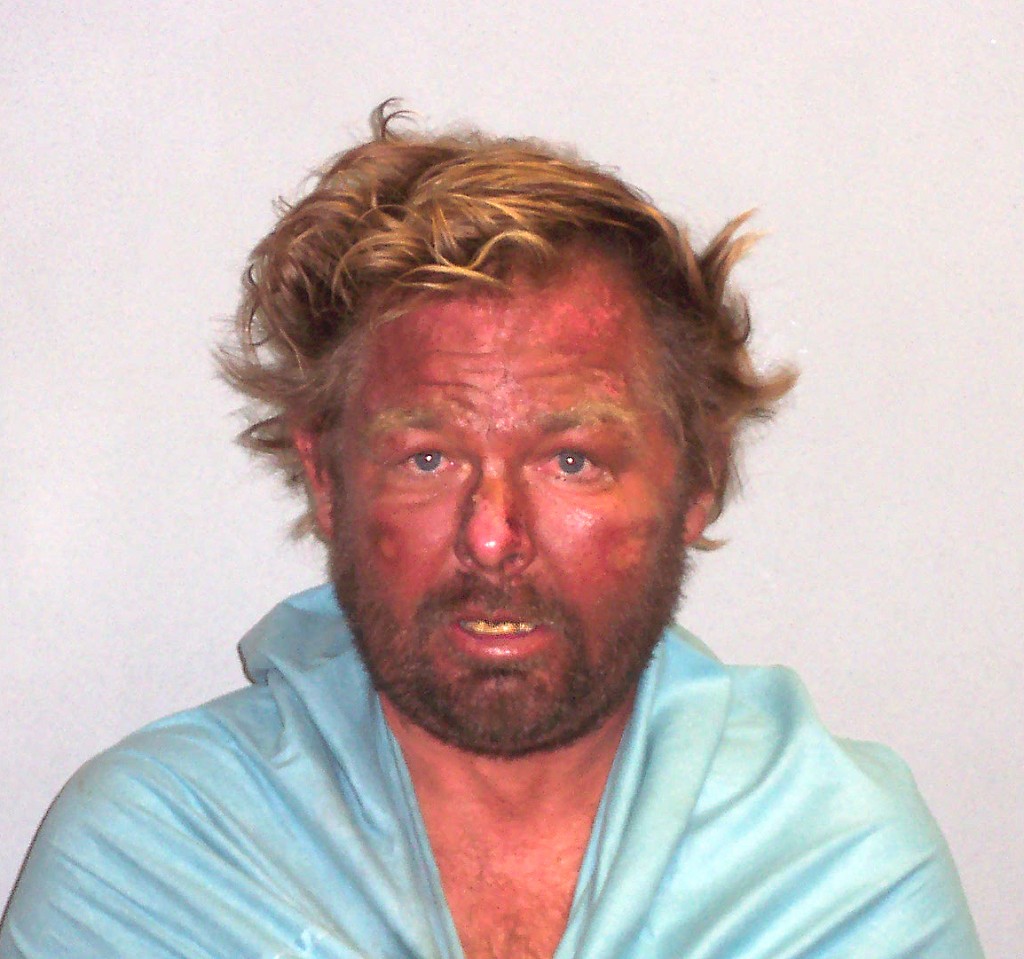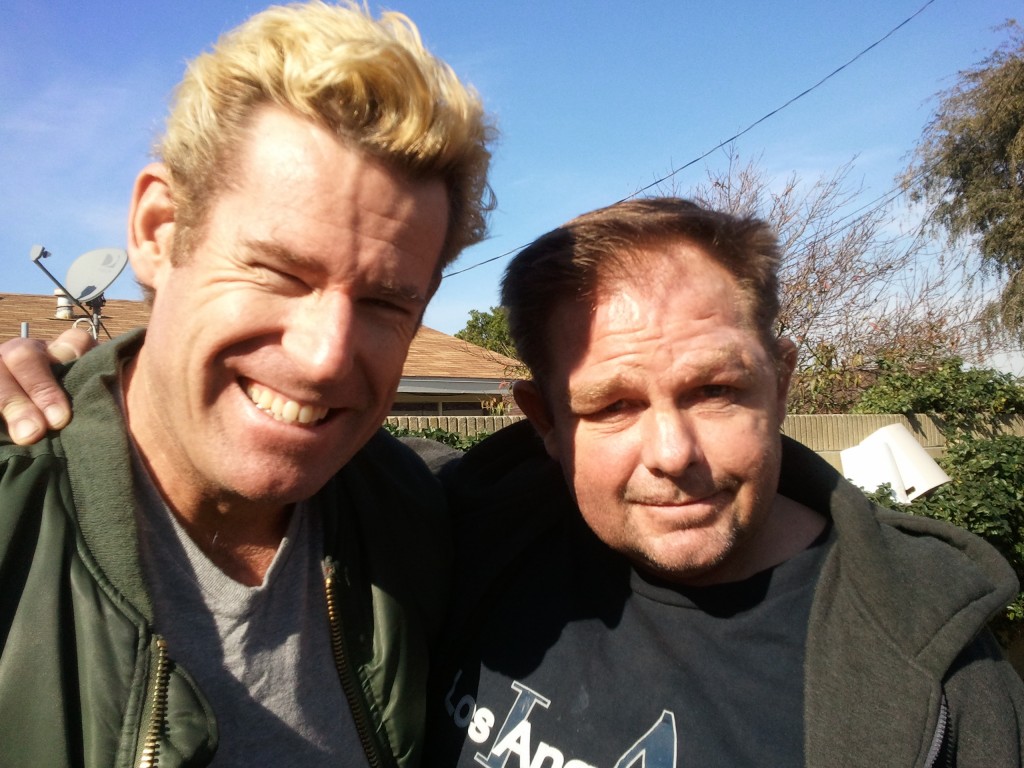Mark David Allen, the Newport Beach man known for being arrested over 500 times and the focus of a 2006 documentary about his life as a chronic alcoholic, spent two weeks in a rehab program before being arrested again in Newport Beach recently.
Allen, 49, has been arrested nine times since Jan. 8, most recently for obstructing a public officer on Feb. 13. He was also arrested for petty theft on Jan. 31 and the other seven times for public intoxication and possession of an open container of alcohol/drinking in public. Allen was sentenced last week to 180 days in jail for the petty theft charge.

In December, after about two months in jail, Allen stayed willingly in a rehabilitation center for four or five days, said David J. Sperling, director of the documentary that followed Allen‘s life for 15 years.
Something changed in him after the two months in jail, Sperling said.
“Maybe there was a perfect storm of things internally that clicked,” he said about Allen’s willingness to stay at the center.
Allen was talking about turning his life around, something he has said many times before, Sperling said, but he sounded sincere this time.
“He was saying all the right things and really acting like he was going to follow through,” Sperling said. “He’s never showed (this kind of behavior) in 17 years.”
Allen then went into a program in Lake Elsinore where he voluntarily stayed for two weeks, returning to Newport Beach on Jan. 6 and then getting arrested Jan. 8 for possessing an open container of alcohol and drinking in public.
Relapse is a part of recovery, Sperling said. This was a huge step though, he added, even though he relapsed,. Allen staying for in the rehab program in Lake Elsinore for that long when he had the opportunity to leave, is great progress, he said.
“This is a big deal,” Sperling said.
Sperling will try again when Allen gets out of jail in summer.
The past couple of months have been a happy surprise, Sperling said.
Even the simple fact that Allen talked about the traffic on the way to Lake Elsinore is a positive sign, Sperling said.
There is still a chance for Allen, Sperling said.
“I’ve always been hopeful, but realistic,” he said. “Because of the brain damage [from a car accident when Allen was young] there are limitations.”

The film, titled “Drunk in Public,” followed Allen over 15 years and 450 arrests. The documentary has screened in 14 film festivals and collected five awards. The movie is meant to provide a “non-judgmental objective long term look at the progressive nature of addiction,” according to the film’s official Facebook site.
Sperling is putting together a new, updated version of the film, which should be ready by April. More information about the film, Sperling and Allen can be found on the film’s website, www.defiantlove.com.
Allen has had a huge impact on so many people, Sperling said, and he doesn’t even realize it. Sperling said people have sent him letters and called him with stories of how the film and Allen’s life has affected them. People get really inspired by the movie and Allen’s story, Sperling said.
For Allen, it is not just the alcoholism that has been mentally deteriorating, he has brain damage from a car accident that happened when he was young. Allen and friends were driving home from Mexico and all had been drinking, Sperling wrote on his website, Allen was the only one to survive and was in a coma for 37 days resulting in permanent brain damage.
Soon after, Allen developed a seizure disorder. Allen has fallen, nearly drowned and almost choked from vomit or mucus after having a seizure.
He has also been hit by numerous cars, had many head injuries and has had to be revived a number of times, a few times by Sperling himself. Part of his charm, Sperling wrote on the website, is how indestructible he seems to be.
Something Sperling worries about is the point when Allen inadvertently injures an innocent person, for example, by stumbling out into the street and causing a car to swerve out of his way or something similar.
There are a few reasons why Allen has not been declared “5150” and put into a program for disabled, Sperling wrote on the website. One reason is because every time Allen is sober and professionally evaluated he is somehow able to recite the answers that the doctors want to hear, Sperling wrote. Also, he hasn’t been declared an imminent threat to himself or others and that he is able care for himself. Sperling goes into detail about all the reasons on his website.

The movie and the story behind Allen highlights that there is a huge problem, Sperling said, that a person can be arrested more than 500 times and still be released to be able to continue his addiction.
Sperling estimated about $400,000 had been spent on Allen over the years, factoring in the amount of time and money it costs to have paramedics pick him up, police officers stay with him at the hospital, hospital tests, treatments and medications, and the mileage and wear and tear on vehicles that must taxi him around and up to jail.
There are alternatives that may help people like Allen and cost less in the long run, Sperling said, but it is such a complex issue with so many variants that it is hard to try and create a program or something that will work.
“What works for one person doesn’t always work for someone else,” Sperling said.
Allen does a lot better when he just has someone with him, Sperling said, someone who cares about him and is willing to listen and help.
Sperling, who met Allen while working at the Newport Beach jail, said he has helped others and the one thing he has found that helps the most is just showing that he cares.
“I just spent a little time with them [other addicts in jail] and listened,” Sperling said. “When you spend time with someone, maybe not saying much with your words, it just shows you care and you think they are worth the time and effort… It’s never a mistake to care.”
Sperling does say he has failed with Allen though, he set out to get Allen sober in 1994 and said he failed in doing that. But the effort was still significant, he said, because the process of caring yields a lot of other positive results, like helping others through Allen’s story.
He feels law enforcement officials, overall, could be more like social workers, since their work is similar, dealing with people who need help.
“(That’s) Just my opinion, not everyone will agree,” Sperling said.
When someone goes to jail they are pretty down on themselves, Sperling said, and they don’t expect there to be someone there asking how they can help and wanting to listen. That can make a big difference, he said.
Sometimes caring about that person is all someone can do, if, like in Allen’s case, the person can’t be forced to get help. But how many times does someone like Allen have to get arrested, Sperling asked, until that becomes necessary?
“At what point when a person is destroying themselves do you intervene?” Sperling asked. “When do you pull someone’s freedom (to make their own choices) away from them (for their own sake)?”





For more information please visit: http://www.Facebook.com/DRUNKINPUBLICDOCUMENTARY
Reviews are available on: http://amzn.com/B0039Y774Q
The official website is: http://DEFIANTLOVE.com/id55.html
Thanks for all of the support, comments and feedback.
“Every moment is a mission…Your heartbeat is the countdown.” – David J. Sperling